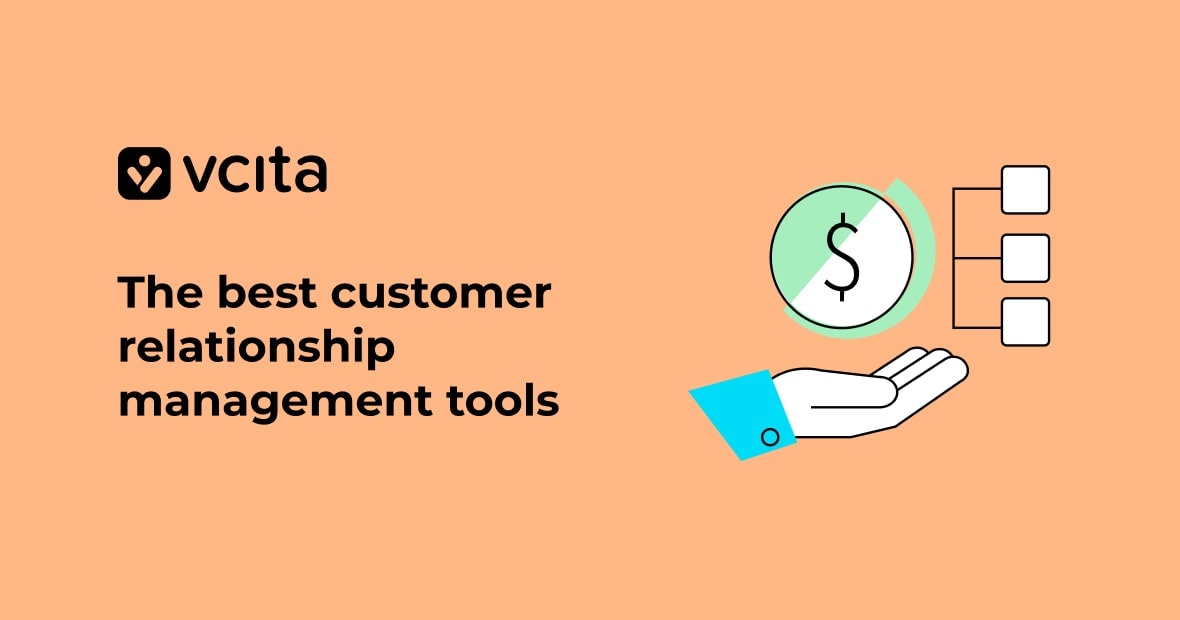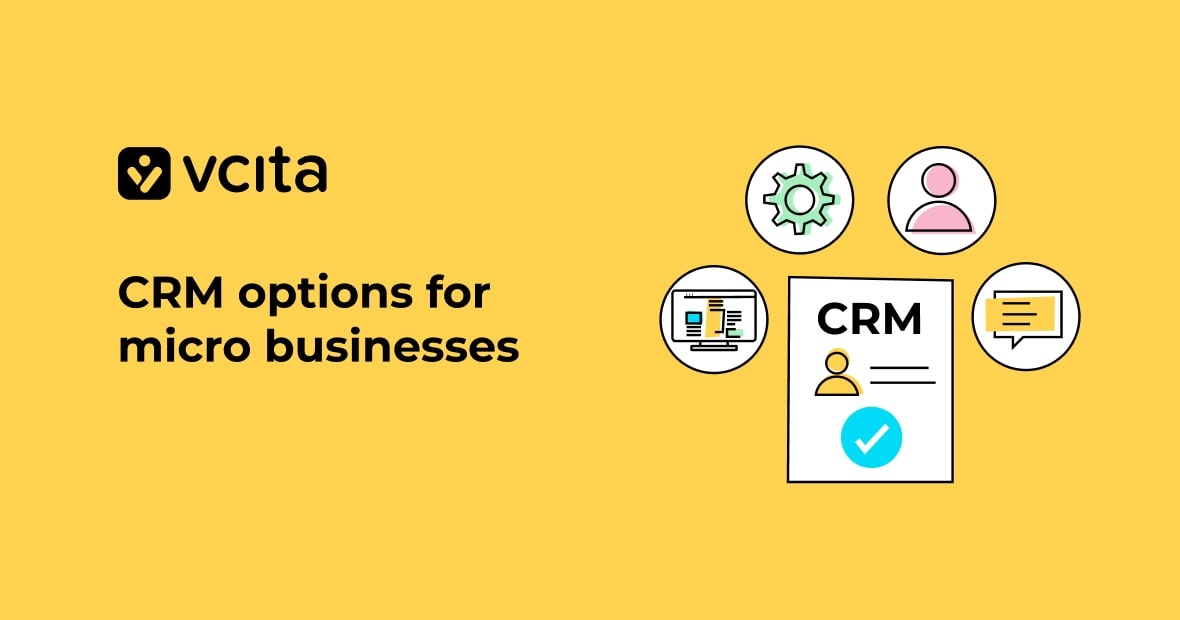Generating profit is a constant struggle for business owners. Not only are there uncontrollable external factors like the level of demand or the degree of market competition, but there are also internal factors that require constant adjustments.
Productivity is one of the best examples.. Success in automating manual tasks and improving efficiency means your employees gain time to focus their attention on higher-level tasks that increase your profits.
Easier said than done, though – which is where CRM steps in.
This is the go-to solution to help you streamline your business operations and decrease relative costs by increasing your output at the same level of input which directly impacts your bottom line.
How a CRM helps you become more productive and profitable
What makes a CRM such a powerhouse is its broad range of capabilities. Think of it as a multitool that can tackle various issues at the same time.
Not only does it help you fulfill client needs but it also helps amp up the productivity of your entire company. It provides the tools needed to streamline all operations from the sales floor to your marketing department.
It does so in several ways:
Streamlines sales processes
Your sales team can use a CRM to track your client’s intentions and purchasing behaviors.
Having insights into your client’s behavior can help you close more sales. A significant bonus is that it also makes your employees’ lives easier.
With this knowledge, salespeople can connect with the client almost instantly (and thus make a sale) because they’re equipped with the right information and context. For instance, if a client recently purchased a yoga session at your studio, you can offer them 10 sessions for a packaged price, making a bigger sale and strengthening your relationship with that client.
The same applies to an online store: if a client abandoned the cart, you can then use that information to retarget them with a special offer.
Decreases employee training
Onboarding new employees can be an arduous process. With a CRM, you can reduce training time and prepare your new employees for the real world much faster.
While using a CRM has a significant learning curve too, it’s still easier than teaching an employee how to do things, like pipeline management, manually.
For example, certain CRMs such as vcita, offer an extensive library of video tutorials your new employees can use to learn the software on their own.
Because all the processes are integrated into one system, new workers can use the knowledge from tutorials to start practicing right away. As a result, they’ll feel more confident in their skills much faster and get to know exactly how the system operates.
Integrates with mobile
These days, the workforce is no longer chained to the office desk. To address the needs of the modern, on-the-go worker, CRM solutions usually offer a mobile app.
These apps are a godsend for people on the move as they allow you to track activity and keep the CRM updated from anywhere. The process of, let’s say, locating client information is no different on a mobile device than it is on a desktop computer.
It also makes things a lot easier since workers no longer need to keep a bunch of notepad lists or wait until they’re back in the office to make updates – they can make changes at any time and place.
Integrates with your back office
Once the front end of your company is integrated through mobile, you’ll quickly realize you can reap more benefits once your back end is brought into the loop. The back end of your business refers to the operations of a business that clients rarely see, such as accounting, data processing, document handling, and administration.
The first step is digitizing transactions and account information on all devices to be able to authorize sales, invoices, or orders in real time.
Integrating the front with the back allows you to manage transactions in a specific backend system, for example, accounting or order fulfillment. It helps the CRM integrate all functions digitally and allows all of your workers to sync up on access and real-time data transactions.
Expands intranet
The scalable nature of a CRM helps improve two-way communication inside the office. However, it can also level-up collaboration between users in real-time across different geographical locations.
This allows your employees to work together on a task or tackle the problem as a team. The real-time collaboration will open up your employees to faster decision-making and enable fail-safe solutions.
Additionally, an expanded intranet will provide more straightforward visibility into the system, allowing every stakeholder to set up solutions at the right time.
Automates tasks
Automation completely changes the game as it drastically decreases the number of tedious tasks.
For instance, it can overhaul your sales workflow and lead to more productivity. Doing things like capturing leads manually is not only time-consuming but also a process where mistakes are bound to happen.
Luckily, a lot of these tasks can be automated:
- Importing contact information – A CRM allows you to import contact data from survey tools automatically. You can also easily extract contact information from social media.
- Pipeline management – The software can automatically flag any deal after no contact was established for a while, as well as flag the deals after they hit a certain age.
- Sending personalized emails – Once a deal or a lead reaches a certain stage, a CRM can automatically send out a personalized email.
- Creating follow-up tasks – Every time new contacts are added, you can easily create a follow-up task to ensure you don’t miss out on an opportunity.
- Lead/deal allocation – Once a sale progresses past a critical point, a CRM automatically allocates it to senior staff.
- Monitoring prospects – By tracking the engagement with your business, such as email opens, a CRM allows you to schedule the appropriate activities automatically.
Centralizes documentation
Capturing knowledge is crucial if you want to see the productivity in your organization go a step further. The information you have should be updated constantly and everyone should have easy access to all of your documents.
You can eliminate a lot of back and forth if, for example, everyone on your sales team has key documents like proposals or quotes ready at hand.
Centralizing all of your documentation is a major time-saver. By providing your employees with up-to-date information that’s instantly available, you can make your entire sales process more scalable and flexible.
Allows you to identify risks and opportunities
Having a simple dashboard where you can see all the important information is the easiest way to diagnose issues that would otherwise fly under your radar. A CRM can give you detailed reports on a multitude of stages in your sales process.
You can get reports using different insights such as:
- Your closing ratio (how many leads are converted into sales)
- The number and the average size of deals in your pipeline
- The average time required to turn a lead into a closed sale
- The source of your deals and leads
- And much more
With a CRM, you can easily identify risks and opportunities and stop a disaster before it happens. For instance, if you detect that the size of your deals is falling, it might mean that you’re offering too many discounts. Being able to view this information and act on it is one of the best skills a business owner can attain.
Enables you to work collaboratively
Collaborative working can be a major productivity boost and a significant time-saver when done right. Because a CRM allows team members to access the same information in real time, they can get straight to work whenever a new lead or a deal lands.
Coworkers can tag each other in comments, which could be a great signal for the other person to take over. This can prove beneficial as it will increase your employees’ focus and motivation.
Furthermore, such a method of handling tasks establishes a better structure in the workplace. For instance, your sales team will be able to focus on a specific task for a while and break it down into chunks with everyone doing a specific part. With this level of organization, they’ll be less likely to procrastinate or get overwhelmed by a huge task.
Personalizes client interaction and marketing
Which email are you more likely to open: one that’s sent out to everyone or one addressing you by your name?
Clients no longer respond well to a generic approach. However, a CRM allows you to engage them in a more personalized manner. By using this software, you can gather information and process it to give your clients the tailored experience they expect.
This is particularly important for large ticket sales that require more care. With all the information available, a CRM provides enough for even a new salesperson to take over a client without restarting the sales process.
Your marketing department can also benefit here as they have access to the same information and can use it to improve their campaigns. With sufficient data from previous sales, you’ll easily convert your potential clients into your actual clients.
Integrates with social media
Most clients nowadays are lurking on social media, even using it to purchase items in some cases. If you receive any orders from this channel, those sales also need to be connected to your central system.
Just as we previously mentioned, you can leverage these networks to capture new leads. This is especially helpful with a CRM as you can target new clients on social media through dynamic marketing campaigns.
A complete overhaul of your business
With just a single adjustment, you can completely overhaul your entire business and take it to the next level. Not only will you be able to grow your client base through improved marketing campaigns and a more personal touch, but you’ll also improve the effectiveness of your employees.
Productivity is somewhat of a buzzword in the business world but with a CRM in place, it becomes a reality. Your workforce will save a lot of time on menial tasks and as a result, perform better when it comes to making actual sales.
On top of that, simplified remote working and streamlined access to company information will positively impact their wellbeing and morale. You’ll no longer have to deal with disgruntled employees and they’ll be happy to play a part in increasing the company’s bottom line.
All that from a single software solution.




























